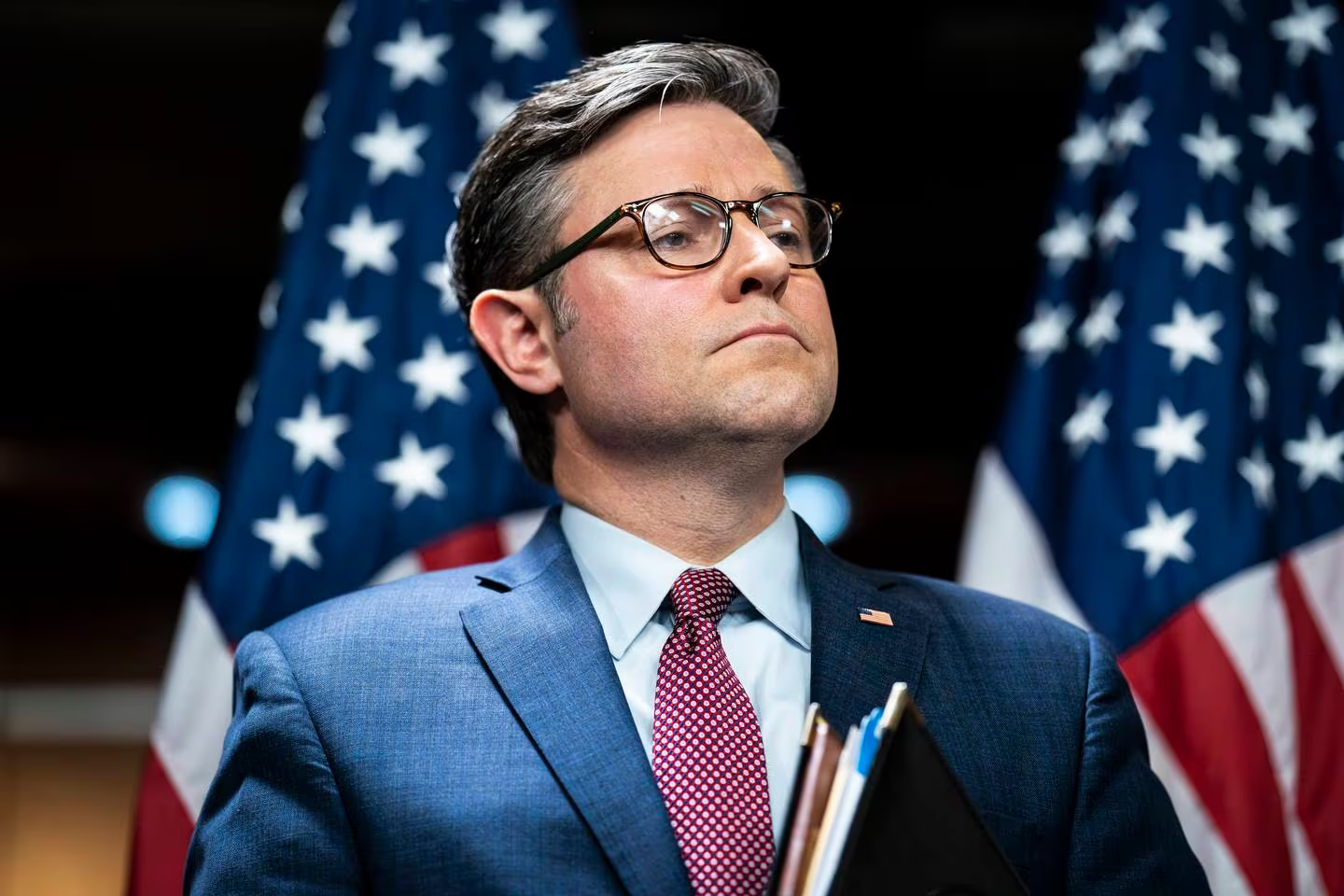In the early 2000s, a passionate legal dispute against the opening of the Deja Vu strip club in Shreveport, Louisiana, marked a pivotal moment for House Speaker Mike Johnson (R-La.). A dedicated young lawyer at the time, Johnson’s fervent opposition to the adult entertainment establishment would set the stage for his subsequent political career and eventual ascent to the House speakership.
At a Shreveport City Council meeting in April 2002, Johnson, just four years out of law school, presented his case against the strip club. “I have done an exhaustive legal research on this matter, probably more than anyone,” he asserted to the municipal lawmakers. Johnson’s argument centered on the potential negative social impacts, such as the spread of sexually transmitted diseases, associated with the arrival of another “sexually oriented business” (SOB) in the area.
Despite Johnson’s impassioned plea, the Deja Vu club opened its doors early the following year. However, this dispute marked a significant shift in Johnson’s career trajectory, leading him away from general practice law and toward a singular focus on culture wars and conservative values. This trajectory propelled him into elected office, first in the Louisiana legislature and later in Congress, culminating in his recent appointment as House Speaker.
The clash over the Deja Vu club also underscored broader transformations in Shreveport, as religious conservatives gained influence in response to the controversies surrounding riverboat casinos and adult entertainment venues. Johnson’s district, once a Democratic stronghold, transformed into a Republican bastion, thanks in part to the activism of religious conservatives who later became Johnson’s political allies.
For Johnson, the battle against the strip club became a defining moment. Scott Sinclair, a Shreveport attorney involved in the litigation against the club, remarked, “This is when Mike arrived on the scene. It’s very consistent with his character. Mike’s got a very strong faith-based position. He’s a Christian, and he doesn’t mind anybody knowing that.”
Martyr for Morality
Following the Deja Vu episode, Johnson joined the Alliance Defense Fund (ADF), now known as Alliance Defending Freedom, where he worked for nearly eight years. The Christian nonprofit provided him with a national platform to advocate against abortion and same-sex marriage, solidifying his position as a prominent conservative figure.
In 2003, the ADF produced a radio ad titled “Portraits of Freedom,” highlighting Johnson’s role in the strip club controversy. The ad depicted Johnson as a martyr for morality, sacrificing a job that had brought him back to Shreveport. Although Johnson’s former employer, Don Armand, contested the claim that he was forced out due to his advocacy, the narrative surrounding the radio ad became an enduring part of Johnson’s political lore.
Despite the ad’s dramatization, Armand clarified that Johnson had chosen to return to the ADF, describing it as “his career choice.” This decision marked a formative moment for Johnson, solidifying his commitment to conservative causes and shaping the trajectory of his political career.
Continued Advocacy Against Adult Entertainment
Even after the Deja Vu club opened, Johnson continued his crusade against adult entertainment venues. In 2004, he assisted in drafting ordinances regulating sexually oriented businesses not only in Shreveport but also in other municipalities statewide.
Johnson’s opposition to the strip club extended beyond its opening. Despite a Shreveport Times review describing the establishment as “clean” with a “sophisticated décor,” Johnson maintained his stance against it. In a January op-ed, he called for new regulations for adult businesses, linking them to rising issues like prostitution, drug use, and crime in Shreveport.
The enduring impact of the Deja Vu controversy on Johnson’s career is evident in his consistent advocacy for conservative causes, from his time at the ADF to his positions in the Louisiana legislature. His opposition to the strip club may have been a local battle, but it shaped Johnson’s trajectory as a national conservative leader, culminating in his current role as the Speaker of the House.










